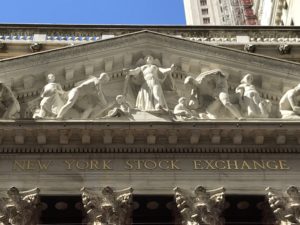
In 1997, Fareed Zakaria wrote of illiberal democracies. His concern centred around the freedoms (such as speech, assembly, religion, property) that Zakaria termed ‘constitutional liberalism’. These natural rights held by human beings were to be respected by government. Illiberal democracies casually ignore constitutional limitations and undercut the aforementioned ‘basic’ rights. Zakaria’s observation has offered insight for contemporary events: ‘Constitutional liberalism has led to democracy, but democracy does not seem to bring constitutional liberalism.’
The illiberal workforce
Circumstances in Western politics have given rise to the idea that there is a rejection of liberalism; but a particularised version in which basic rights are being curbed for a segment of the population based upon economic worries. The workforce has been closely aligned with this refutation. (It was not too long ago that ‘the resilience of neoliberalism’ was the focus.) The narrative is that they are seeking their part of the growth that liberalism was supposed to have provided. This failing to have transpired, workers are now calling time and demanding their share through the right of franchise; seeking to put in place politicians who will address their concerns. It may be that workers have reached a breaking point in which they see the gains of others coming at their expense. When this arises, as the authors of The Clash of Rights identify, attitudes towards the rights of others change.
Economic concerns of the workforce
Part of the difficulty with a view of the workforce as illiberal is that it dismisses the nuanced nature of circumstances. One difficulty is that the workforce is not comprised of a homogenous group of individuals. The fears of workers with regards to liberalism can be linked to the economic, particularly as a reverberation from The Great Recession. This in itself is a contested point because there are also social considerations.
Publications in the last few years include those which investigate the decline or even failure of liberalism. A proponent of liberalism, The Economist has run a series on its origins. The collection of publications speaks to the on-going impact of The Great Recession. The perception of outcomes linked to that period of time (correctly or otherwise) include: the increase in the wealth of the world’s richest and the rising cost of living with wage increases that do not match. There has been a growing sense of frustration localised within the workforce.
A difficulty with a simple alignment between workers and illiberalism is one that has been seen with trade unions. It was a notable point in British labour history when Tony Blair wrote in his foreword to Fairness at Work that his government’s policies will ‘draw a line under the issue of industrial relations law.’ The insinuation was that trade unions had held up progress.
A view that workers support illiberal stances carries the potential for a similar affiliation; that is, being an obstacle to innovation and change.
_____________________________
To make sure you do not miss out on regular updates from the Kluwer Regulating for Globalization Blog, please subscribe here.

